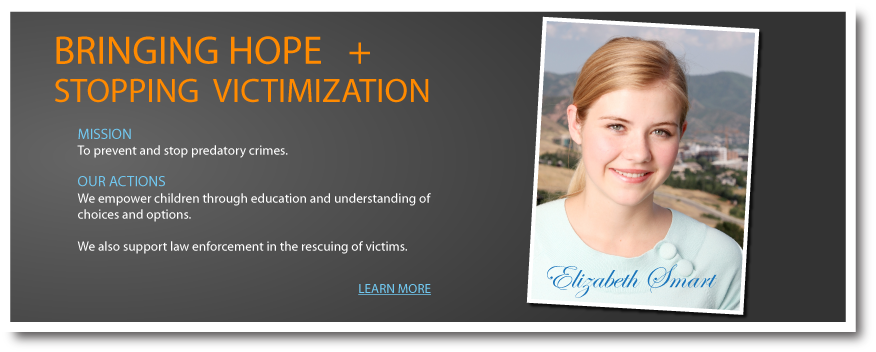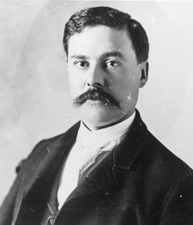Elizabeth Smart, the rescued kidknapping victim who has gone on to serve an LDS mission and graduate from BYU, is now heading a foundation which advocates for victims of sex crimes.
She recently spoke at Johns Hopkins University and the Christian Science Monitor reported the following:
Rescued kidnapping victim Elizabeth Smart said Wednesday she understands why some human trafficking victims
don’t run.
Smart said she “felt so dirty and so filthy” after she was raped by her captor, and she understands why someone wouldn’t run “because of that alone.”
Smart spoke at a Johns Hopkins human trafficking forum, saying she was raised in a religious household and recalled a school teacher who spoke once about abstinence and compared sex to chewing gum.
“I thought, ‘Oh, my gosh, I’m that chewed up piece of gum, nobody re-chews a piece of gum, you throw it away.’ And that’s how easy it is to feel like you know longer have worth, you know longer have value,” Smart said. “Why would it even be worth screaming out? Why would it even make a difference if you are rescued? Your life still has no value.”

Tara Culp-Ressler at ThinkProgress adds the following:
Social psychologists and sexual abuse counselors agree that comprehensive sex education can help prevent sexual crimes. Teaching children about their bodies gives them the tools to describe acts of abuse without feeling as embarrassed or uncomfortable, and it also helps elevate their self-confidence and sense of bodily autonomy. A shame-based approach to genitalia and sexuality, on the other hand, sends kids the message that they can’t discuss or ask questions about any of those issues.
Nonethless, abstinence-only education programs have a long history of imparting harmful messages that shame youth about their sexuality instead of teaching them the facts they need to safeguard their health. A high school in West Virginia recently made national headlines after hosting a conservative religious speaker who allegedly told students “if you take birth control, your mother probably hates you” and “I could look at any one of you in the eyes right now and tell if you’re going to be promiscuous.” In Smart’s home state of Utah — which is home to a large religiously conservative Mormon community — sex education is currently mandated, but lawmakers have repeatedly pushed to weaken the state law and reinstate an abstinence-only curriculum.
Kristine Haglund, the editor of Dialogue: A Journal of Mormon Thought, has some additional thoughts at By Common Consent about how this issue is addressed within Mormonism.
I am glad that we have voices and leaders like Elizabeth Smart and Kristine Haglund.












